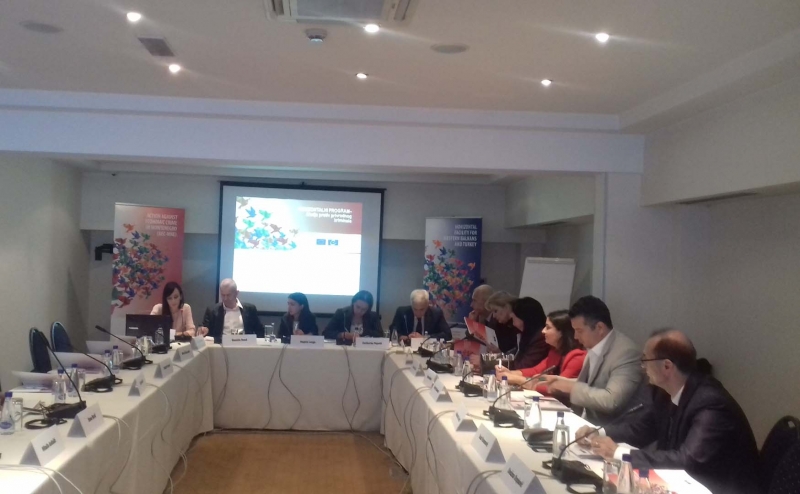The Chairperson and members of the Committee on Human Rights and Freedoms, along with the Chairperson and members of the Anti-corruption Committee, and members of the Administrative Committee and the Gender Equality Committee participated in the training “Ethical standards, good conduct, and prevention of the conflict of interest” which was held in Podgorica, on 18 October 2017.
The training was organised by the Council of Europe within the framework of the Horizontal Facility for the Western Balkans and Turkey - Action against Economic Crime in Montenegro, and led by the Council of Europe expert Mr Quentin Reed.
The training represents a continuation of activities implemented for the members of the Parliament of Montenegro, which included the meeting of Chairperson of the Committee on Human Rights and Freedoms Mr Halil Duković with the expert Mr Quentin Reed in December 2016, the Workshop on “Ethics and prevention of the conflict of interest” where Draft Guidelines on Good Conduct were presented in March 2017, and meeting of the Chairperson of the Committee on Human Rights and Freedoms with the Head of the Programme Office of the Council of Europe in Montenegro, held in October 2017.
This activity aimed to train MPs to implement Guidelines on Good Conduct in order to contribute to fulfilling the GRECO recommendations from the fourth evaluation round Report, and to improve the implementation of the Code of Ethics for MPs and the Rules of Procedure of the Parliament of Montenegro.
The following delivered introductory remarks: Chairperson of the Committee on Human Rights and Freedoms Mr Halil Duković, Chairperson of the Anti-corruption Committee Ms Daliborka Pejović, and Head of the Programme Office of the Council of Europe in Montenegro Ms Angela Longo.
The Chairperson of the Committee on Human Rights and Freedoms reminded that, in addition to the responsibilities of this Committee laid down in the Rules of Procedure of the Parliament, the Code of Ethics for MPs prescribed that oversight over its implementation and monitoring of its observation would also be done by the Committee on Human Rights and Freedoms.
Chairperson of the Anti-corruption Committee Ms Daliborka Pejović pointed out the significance of recommendations of the Council of Europe for strengthening the trust in the election system and process. She also considers the trainings implemented by the Council of Europe within its projects in Montenegro to be significant, because of Montenegro’s lack of knowledge and capacities.
Ms Angela Longo, Head of the Programme Office of the Council of Europe in Podgorica, said that the goal of the Action against Economic Crime Montenegro was to improve the implementation of key GRECO recommendations.
Expert of the Council of Europe Mr Quentin Reed pointed out that the codes of conduct and guidelines were not fully binding as laws, but they helped MPs in situations when it was unclear whether certain behaviour was acceptable or not.
The training was interactive, and in the open discussion and constructive exchange of opinions they considered practical examples containing ethical challenges which could be faced by MPs in their daily work.












